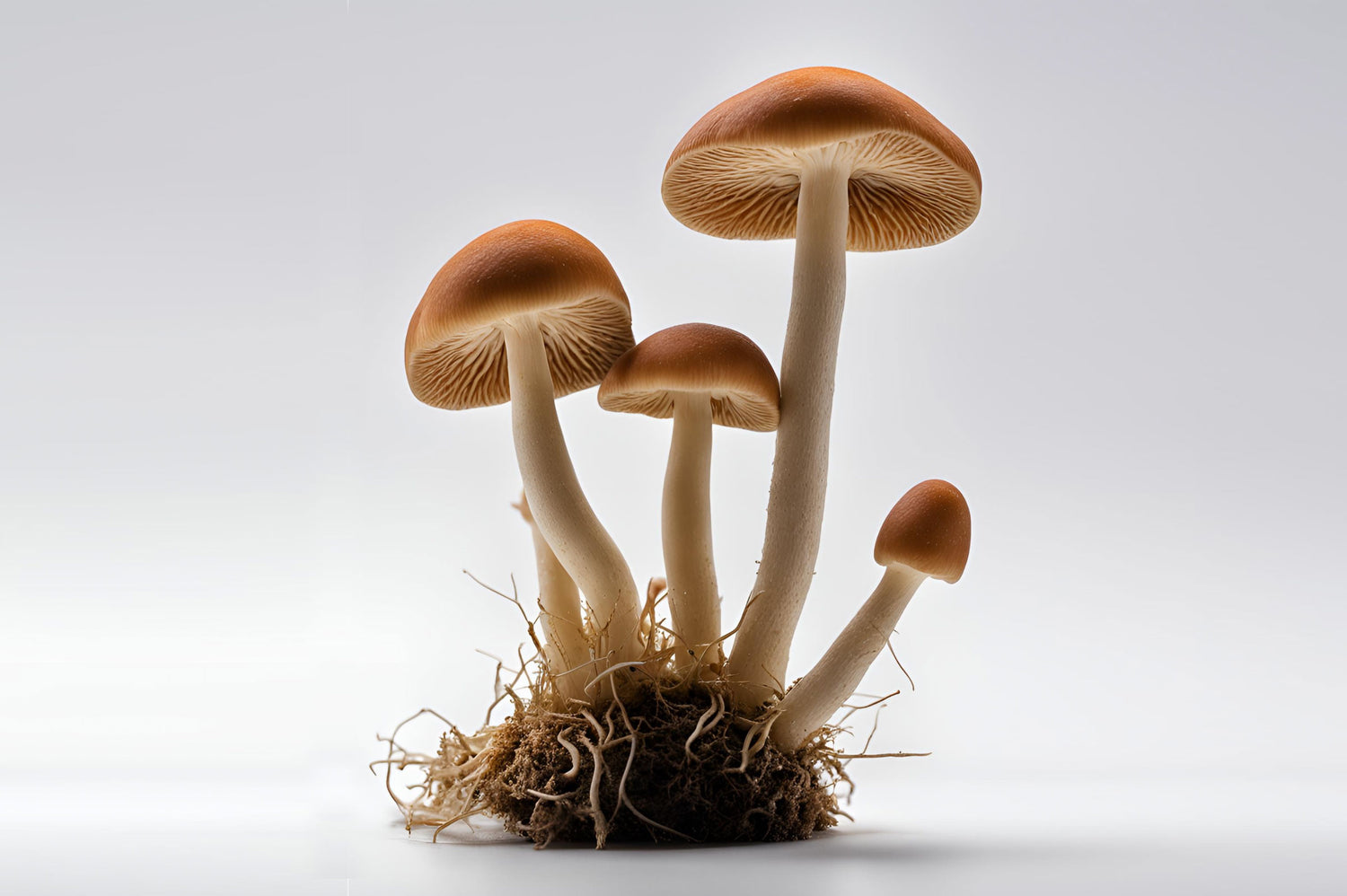Mushrooms are not just a delicious gourmet addition to our meals but also offer powerful health benefits when incorporated into pet supplements. Shiitake, maitake, turkey tail, and reishi mushrooms are particularly noteworthy, each bringing a unique set of advantages to support pet health.
Critical Immune Defense skillfully combines all these mushrooms, providing a comprehensive solution to boost your pet’s vitality and immune system. This article discusses how these mushrooms contribute to the health of our furry friends and why including them in your pet’s diet through these supplements can lead to enhanced well-being.
1. Shiitake Mushrooms: Immunity and Overall Vitality
Shiitake mushrooms are renowned for their rich flavor and substantial health benefits. For pets, these mushrooms can enhance the immune system thanks to their high levels of beta-glucans, compounds known for boosting immunity. Regular inclusion of shiitake mushrooms in your pet's diet can help enhance white blood cell activity, which is crucial for fighting off infections. It also can improve liver health, which aids in detoxifying the body, and supports overall vitality and energy.
2. Maitake Mushrooms: Metabolic Enhancer
Maitake mushrooms, often referred to as 'Hen of the Woods,' are another excellent choice for pet health. Their ability to help regulate blood sugar and support insulin sensitivity makes them particularly beneficial for pets with weight management issues or diabetes. Maitake mushrooms contribute to enhanced immune response, especially in fighting viruses and cancer cells. They also improve digestion and absorption of nutrients due to their prebiotic properties, and reduce blood pressure and cholesterol, promoting heart health.
3. Turkey Tail Mushrooms: Cancer-Fighting Champions
Turkey tail mushrooms are increasingly recognized for their significant health benefits, particularly in the realm of pet wellness. One of the most notable advantages is their cancer-fighting potential. These mushrooms contain a compound known as polysaccharopeptide (PSP), which studies suggest can help inhibit the growth of certain cancer cells. For pets, this can mean a valuable boost to the immune system, enhancing its ability to combat malignancies and potentially increasing the efficacy of conventional cancer treatments like chemotherapy. Additionally, turkey tail mushrooms support overall immune health by increasing the production and activity of white blood cells, essential for fighting off infections.
Beyond their cancer-combating capabilities, turkey tail mushrooms offer general health benefits that can enhance the wellbeing of pets. They are known for their ability to help maintain healthy liver function, which is vital for detoxifying the body—a particularly crucial function when pets are undergoing treatments involving medications that can strain liver processes. The antioxidants present in turkey tail mushrooms also play a role in combating oxidative stress, contributing to better cardiovascular health and slower aging processes. With these benefits, turkey tail mushrooms can be an excellent addition to a pet's diet, potentially improving their quality of life and supporting long-term health.
4. Reishi Mushrooms: The Stress Reliever
Often called the 'Mushroom of Immortality,' reishi mushrooms are a superb supplement for reducing stress and enhancing calmness in pets. Their adaptogenic properties can help pets cope with stress and anxiety, making them particularly useful for pets with nervous dispositions or those recovering from illness. Reishi mushrooms are known for:
- Supporting adrenal function and reducing the harmful effects of stress.
- Enhancing cardiovascular health by regulating heart rate and blood pressure.
- Boosting immune system function, particularly in elderly pets.
Final Thoughts: Integrating Mushrooms into Your Pet's Diet
While the benefits of shiitake, maitake, turkey tail, and reishi mushrooms for pets are impressive, it’s important to introduce any new supplement under the guidance of a veterinarian. Proper dosing is crucial to ensure that your pet reaps all the health benefits without any adverse effects, so make sure to read the label on your immune supplements.
Mushrooms can be a part of a balanced diet, offering a natural and holistic way to enhance your pet's health and well-being. Adding these marvelous mushrooms via our Critical Immune Defense to your pet's diet could open the door to enhanced health and vitality, helping them live a happier, more vibrant life.









